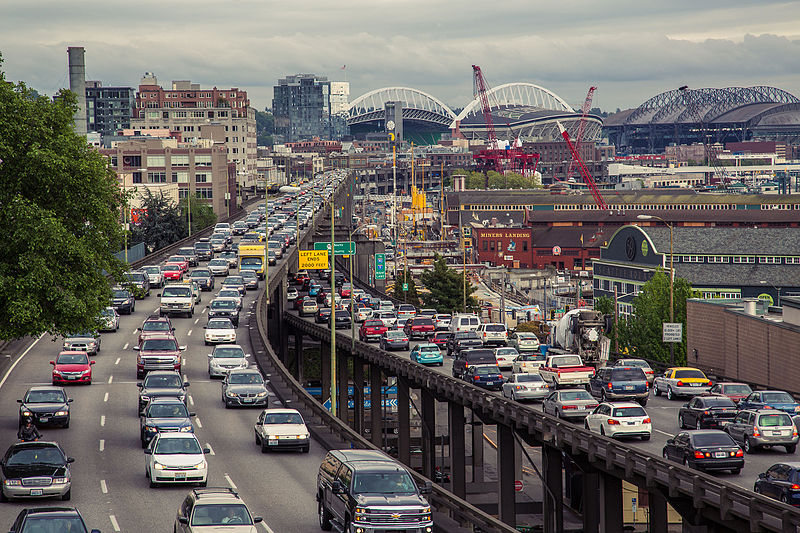How to Plan Your Commute without Destroying Every Important Relationship in Your Life
Seattle traffic is bad. Like, really really bad. Trailing DC, LA, and NYC Seattleites spend 64 hours per year delayed in traffic. This doesn’t even account for the rest of your commute- just the stand still waste of time you spend sitting in your car cursing every major construction project, bad driver, inclement weather, cyclist, and other commuters that may or may not be giving you the stink eye.

This image was originally posted to Flickr by Tony Webster at https://flickr.com/photos/87296837@N00/17903326752. It was reviewed on 23 July 2015 by the FlickreviewR robot and was confirmed to be licensed under the terms of the cc-by-2.0
So instead of being in a terrible mood all of the time because you transition to your work, hobbies, and social engagements after being in terrible traffic for long stretches- think about what ways you can make your commute work.
Establish a realistic amount of time that you can tolerate on a commute. Some people are fine with a 90 minute drive each way; others would cry at the possibility. Once you determine this- map out areas of the Puget Sound and the traffic flow. If you’re only willing to drive for 30 minutes per day, living in Ballard and working in Redmond isn’t going to be a sound option (despite what Google maps traffic-free time estimate might tell you, you will never ever end up in a traffic free commute unless you work at 2 in the morning). Nattavudh Powdthavee’s research suggests that if you are going to take a job where you will give up your personal relationships, you would need to earn $133,000 just to make up for the lack of happiness you feel from being away from those people.
Focus your job search on locations that make sense. If you’re located in South King County don’t even bother applying to jobs in Everett unless you plan on moving immediately. Even if it is a dream job, an unsustainable commute will make you cranky and ultimately unpleasant to live and work with. For the sake of your own well-being, don’t enter into a situation that you know can’t work out in the long term.
If you are more flexible with your living situation (i.e.: you just graduated and are living with your parents until you find a job [we know that struggle]) apply freely and move close to work, but remain realistic about what your commuting options might be. If I were to get a job in Medina tomorrow I likely still wouldn’t be moving there any time soon with the median gross rent ringing in at $2,093 so I would still need to plan for a realistic housing option close enough to make the commute tolerable.
Consider the cost of commuting and factor that into your job search. While salary can be a huge determination in career satisfaction- it can be a common mistake to neglect thinking about what job opportunities might cost you. Looking to work in downtown Seattle? You’ll want to account for parking- as you can spend an average of $300 monthly ($3,600 annually) to park in a covered garage in of downtown. Alternatively you could accept a job that pays slightly less, but offers free parking and less of a headache than the 5pm gridlock of downtown Monday-Friday.
Think about adjusting your hours. While this is often out of your hands it is really an easy conversation to have with your supervisor and/or human resources. By adjusting your working hours from 9-5 to 8-4, you can miss out on being on the road with every other 9-5er in the city. Flexible hours, remote work options, and other commute altering job options cannot be undervalued in this competitive market and rapidly growing region.
Think beyond sitting alone in your car. What are your public transit options? Even if you live in a less populous area, it still might be worthwhile to track down the nearest park and ride station to avoid the expense of driving and parking in the city. Of the many benefits of commuting without the labor of driving yourself include being able to enjoy your time with a book or conversation with a neighbor, the ability to continue working, setting hard start and end times are work- it is much easier to wrap up your day when you know your bus isn’t going to be waiting for you). If transit isn’t an option reach out to your coworkers or neighbors to set up carpools so that you can take advantage of HOV lanes and company.
Whichever scenario you end up choosing- make sure to consider what the impacts of commuting will be for you and what that might mean for your job search.

